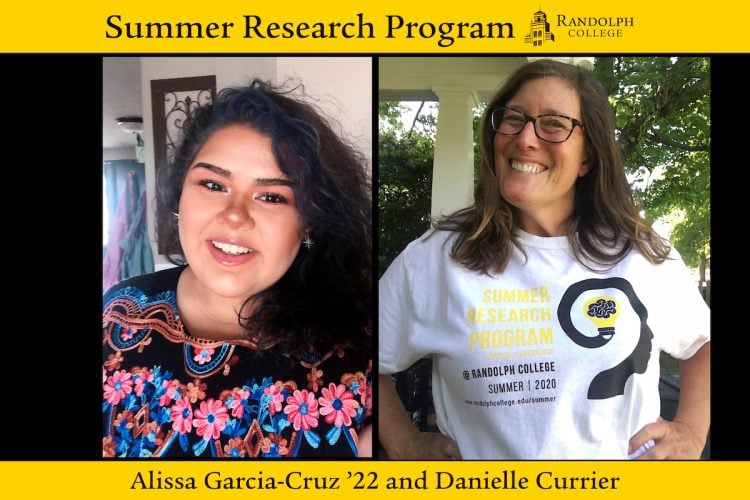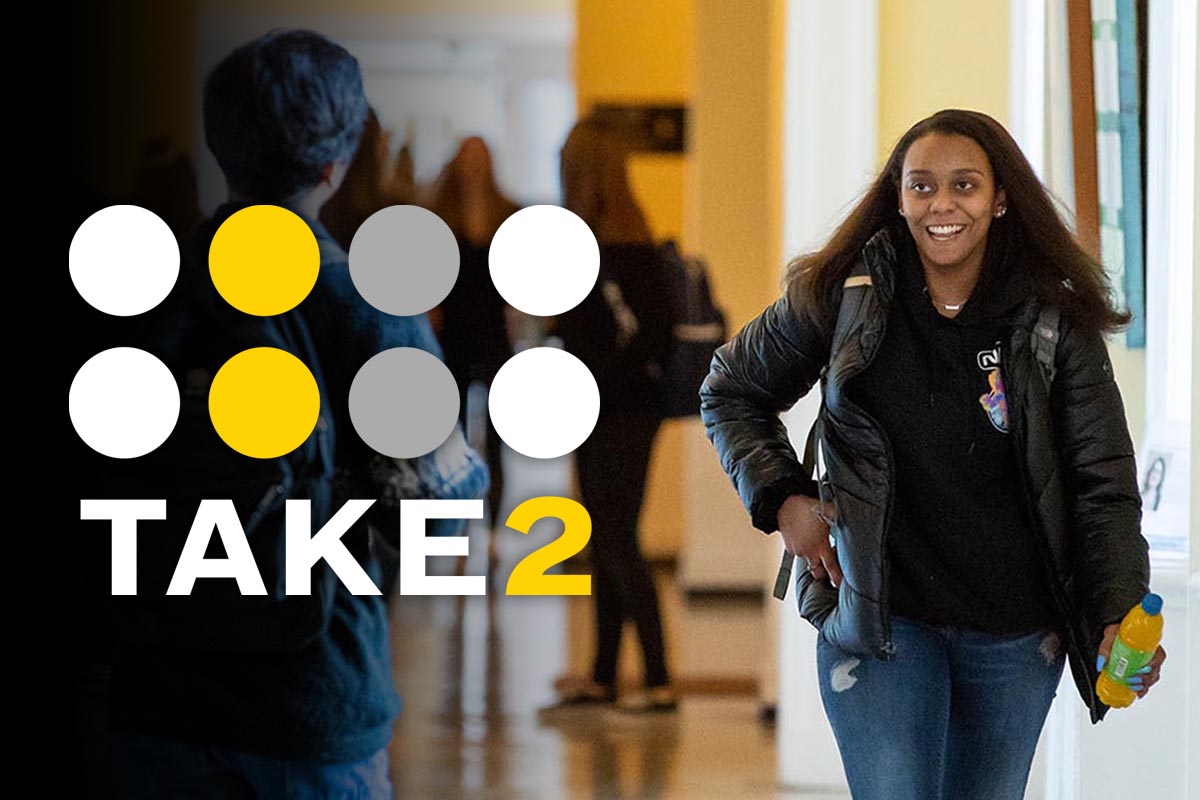Summer Research Project exploring discussions of family violence in Latinx community
This story is part of an ongoing series featuring the work of faculty and students participating in Randolph’s Summer Research Program, which is being held virtually this year due to COVID-19.

Qualitative research often grows out of the life experiences of both participants and researchers.
“We want to talk about our own experiences,” said Randolph sociology professor Danielle Currier. “We do research that pertains to our lives and what we care about, and the changes we want to make.”
That was the genesis of the project she and Alissa Garcia-Cruz ’22 are working on as part of Randolph’s Summer Research Program. Together, they are looking at how people of Latinx or Hispanic descent in the United States do or do not discuss issues such as domestic violence, sexual assault, rape, abuse, and/or incest within their families.
Cruz, who proposed the idea as part of an assignment for Currier’s qualitative research class, comes from a multiethnic family. Her mother is white and her father is Latinx, and she’s seen firsthand how the different sides of her family handle things.
“I noticed that with my mom’s side of the family, we to tend to talk about things, especially violence and sexual abuse,” Garcia-Cruz said. “It is prominent in all cultures. It happens. And it just kind of shocked me how different it was. I do notice there is a lack of discussion on the Latin-American side of my family.”
Initially, she wanted to study the effects of those discussions, or lack thereof, on children.
“She was very interested in what we call intergenerational transmission of information,” Currier said. “How do children learn what they learn? What are the messages children get and what is the effect on them of violence in the family, any kind of violence in the family? What we realized is so much of it is structural.”
Their original plan before the pandemic hit was to conduct in-person interviews with people of Latinx descent. They’re still doing some virtual interviews, just not as many as they would have done in person. But a lot of the work has shifted to researching what resources are available for people experiencing family violence.
Garcia-Cruz is looking at international, national, and state organizations that provide those resources to paint a broad picture of what’s out there, before zeroing in on the differences between what’s available to the general population and what’s available specifically to the Latinx community.
“One of the things Alissa came up with that I think is going to be where we end up focusing is what are the barriers people in the Latinx community experience that are different from people in the white community,” Currier said. “We have talked extensively, and she came up with the idea of machismo and patriarchy, how there’s a different way of being and doing masculinity and femininity among the Latinx community. There is this concept that men are dominant, and how do women respond to that?”
Those family dynamics can play a role in whether or not abuse is reported. It can also factor into what victims consider to be abuse.
“I’ve read a few articles about how there’s the issue of public health services noticing interpersonal violence, but also the victim noticing it themselves,” Garcia-Cruz said.
Other barriers that might prevent the discussions or reporting of abuse include religion, language, and immigration status. Victims might be afraid to report abuse because it could put the immigration status of themselves or a family member in jeopardy. Or, Currier said, it could be the perception of their immigration status that is a deterrent.
“Alissa, for example, is an American. She was born in the United States. But what if somebody looks at her and questions her identity, questions her legality?” Currier said. “We think that affects why people might not report this stuff.”
Garcia-Cruz believes the project is even more important given current events.
“We always talk about how it’s an interesting time to bring up these topics because we’re talking about social inequalities among different demographics, and it’s shedding light on it through the research,” said Garcia-Cruz, who is double majoring in psychology and sociology, with minors in human services and history.
Though she’s not sure of an exact career path yet, Garcia-Cruz knows she wants to help victims of abuse—and sees this research as an important foundation to that future work.
“It really does start with what you teach in the family,” she said.
The Summer Research Program ends this week, but Garcia-Cruz won’t stop there. She plans to continue the work for both her junior and senior projects.
“This is the perfect example of interdisciplinary work and how looking at all these different things is so important to understanding a topic,” Currier said, noting that several psychology professors are interested in working with Garcia-Cruz. “She has the whole psych department behind her.”
“One of the important things for me about this project is that Alissa is able to take what she learned in my class, in the qualitative research class, and move it into actual research that interests her for her life and her community,” she added. “That I think is the value of the Summer Research Program.”
Tags: Danielle Currier, human services, latinx community, psychology, sociology, student faculty research, summer research, summer research 2020
